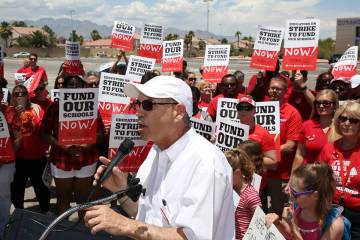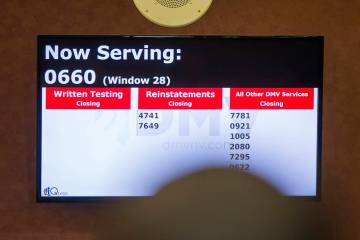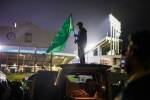EDITORIAL: High court takes up case challenging restrictions on voter clothing
The U.S. Supreme Court will hear a number of high-profile cases this term, including controversies over forced union dues and gerrymandering. On Monday, the justices added a First Amendment dispute to the list.
The case comes from Minnesota and involves restrictions on campaign activity at polling places. In 1992, the justices in Burson v. Freeman upheld a Tennessee statute that banned “campaign posters, signs or other campaign materials, distribution of campaign materials and solicitation of votes” within 100 feet of a polling place. Since then, several states —including Nevada — have enacted similar laws.
Minnesota, however, took it a bit further. The state has made it illegal for voters to wear “a political badge, political button or other political insignia” at a polling place on election day. Andrew Cilek opted to fight the law after he was temporarily prevented from voting because he was wearing a T-shirt that featured the Gadsen flag, a tea party logo and the phrase “Don’t Tread on Me.” He also sported a “Please I.D. Me” button.
Mr. Cilek’s sartorial choices, while perhaps telegraphing his political leanings, were hardly overt calls to action. The Minnesota law is overly broad and could be used to prevent voters from donning virtually any hat or piece of clothing featuring even the most tenuous political connection. How about an American flag lapel pin? A pro-union sweatshirt?
The Roberts court has a history of aggressively protecting free speech rights — and it has another opportunity to do so here by declaring the Minnesota law an unconstitutional abridgement of the First Amendment.




























